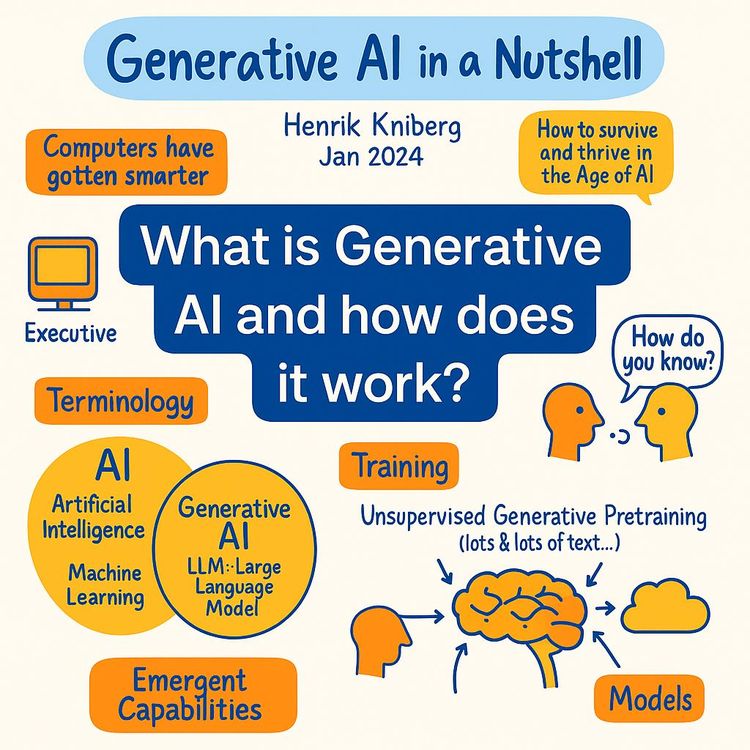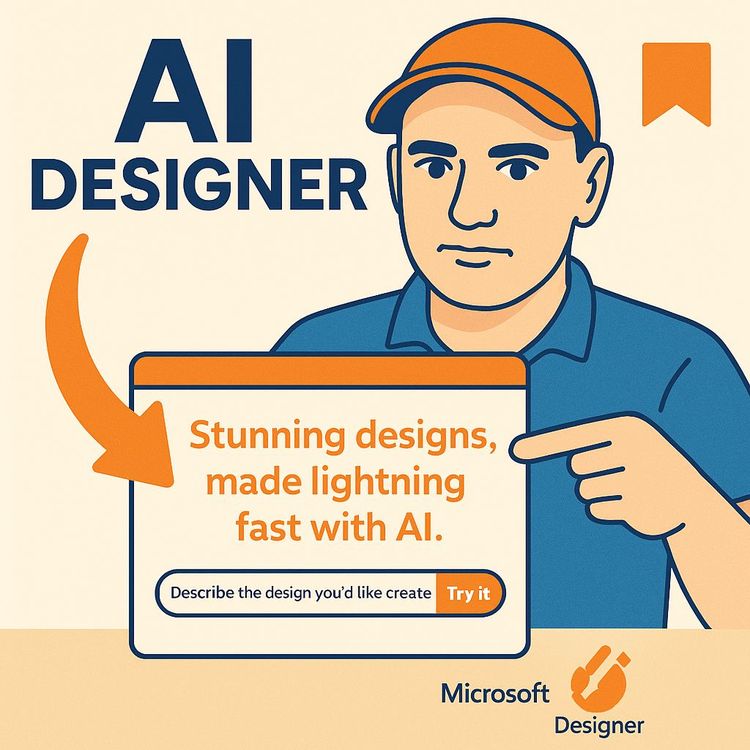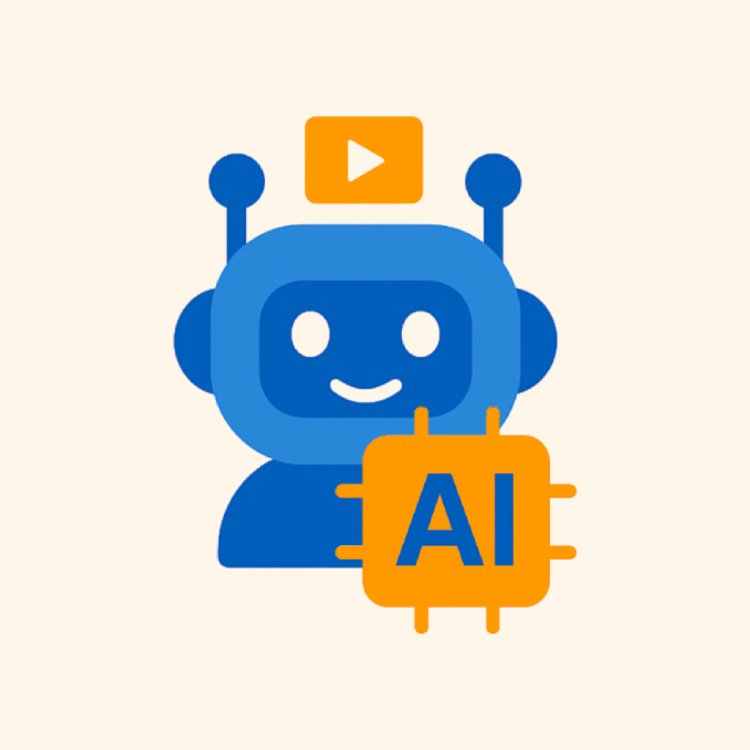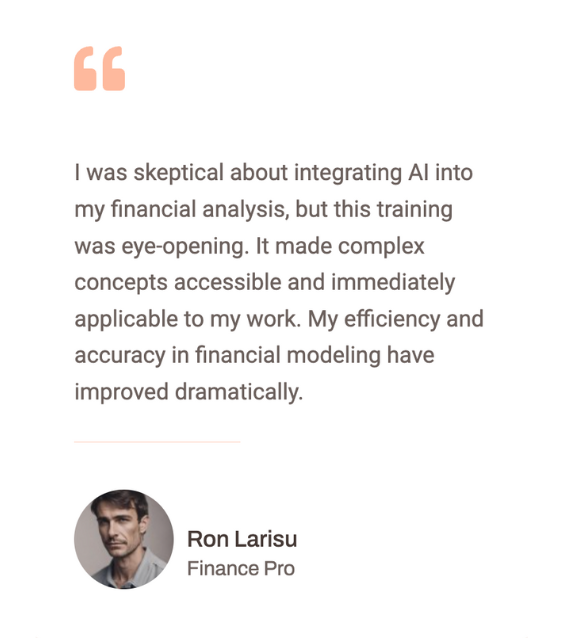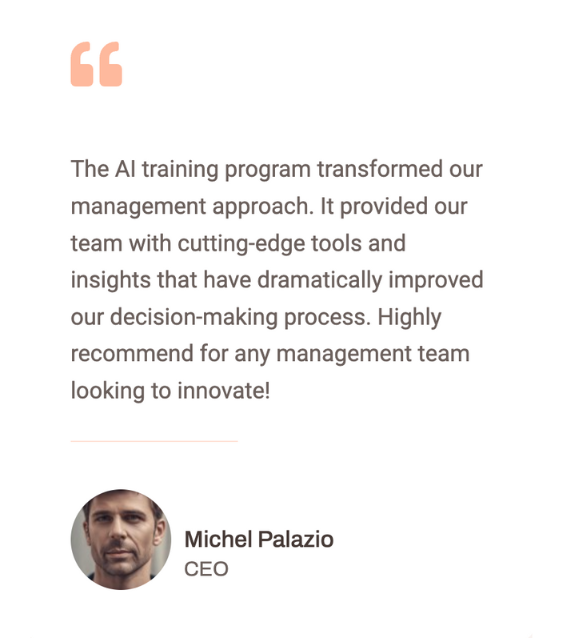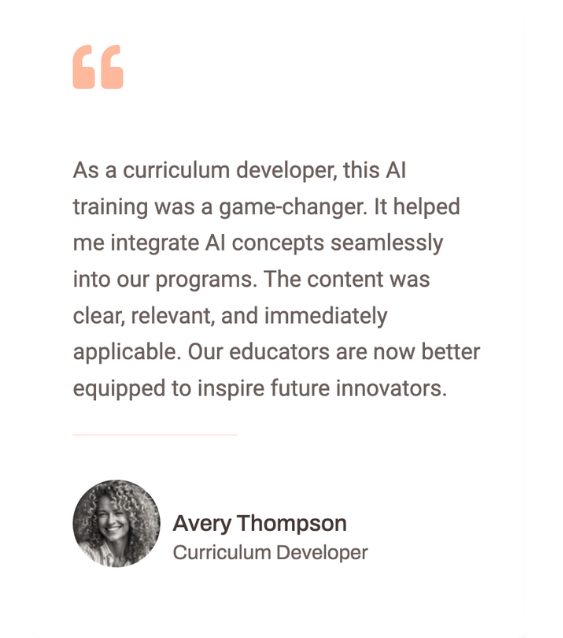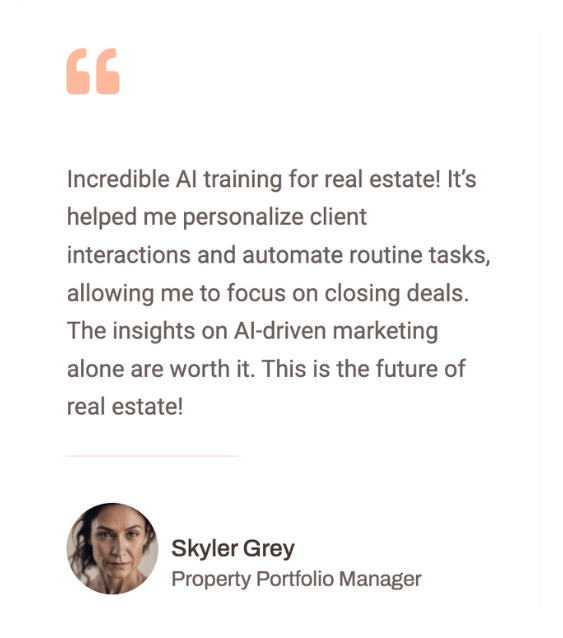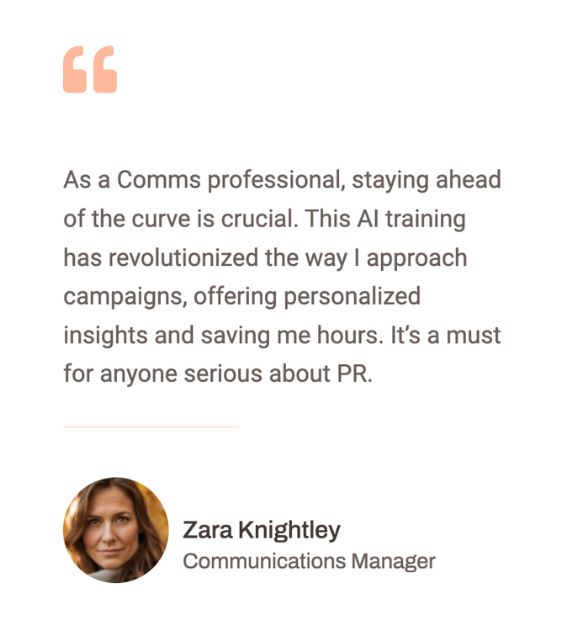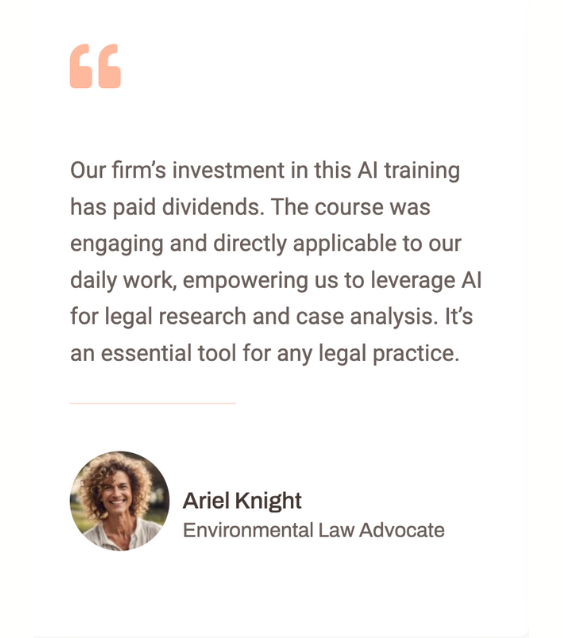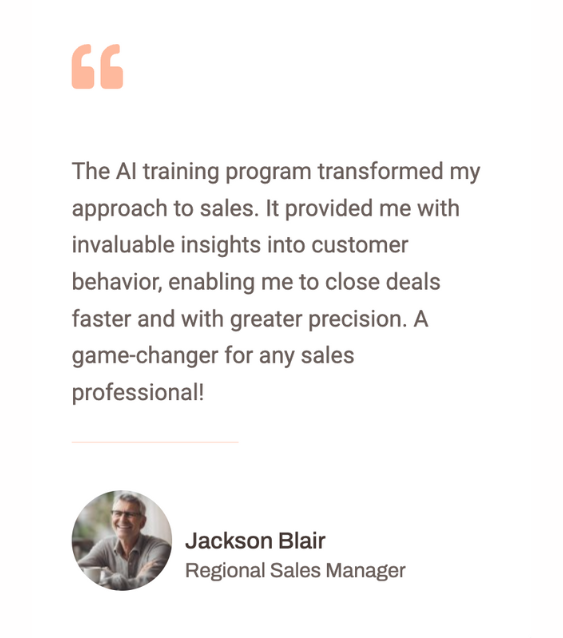Video Course: AI Engineer Roadmap – How to Learn AI in 2025
Embark on an exciting journey into AI engineering with our structured roadmap. Gain essential skills and practical experience to excel in this dynamic field, from healthcare to finance. Prepare for a rewarding career in just a few months.
Related Certification: Certification: AI Engineer Roadmap – Skills and Competencies for Career Success
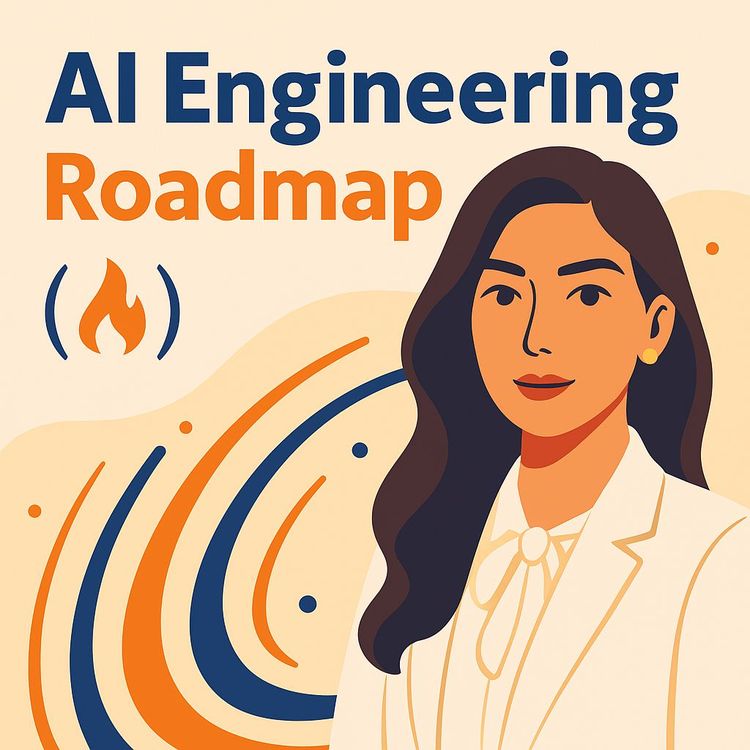
Also includes Access to All:
What You Will Learn
- Fundamental math for ML: linear algebra, calculus, probability
- Data science workflow: cleaning, feature engineering, visualization
- Traditional ML and deep learning model design and training
- Working with Python and frameworks like PyTorch/TensorFlow
- Foundations of generative AI and large language models
- Deploying scalable, ethical, and production-ready AI systems
Study Guide
Introduction
Welcome to the comprehensive guide on becoming an AI Engineer, a journey that promises to unlock the doors to one of the most exciting and rapidly evolving fields today. This course, "AI Engineer Roadmap – How to Learn AI," is designed to equip you with the essential knowledge and skills to thrive in this domain. Whether you're a beginner or someone looking to refine your existing skills, this roadmap offers a structured approach to mastering AI engineering, blending theoretical foundations with practical, industry-relevant experience.
Why is this course valuable? AI engineering is pivotal in bridging the gap between cutting-edge research and practical implementation, ensuring AI systems deliver real-world value. With applications spanning healthcare, finance, retail, entertainment, and autonomous vehicles, the demand for skilled AI engineers is soaring. This course will guide you through the essential skills, from mathematics and programming to deep learning and AI ethics, preparing you for a successful career in AI.
Definition and Role of AI Engineering
AI engineering is the practice of designing, building, and deploying AI systems that solve real-world problems. It exists at the intersection of software engineering, machine learning, and data science, playing a crucial role in making AI models functional and reliable in practical settings. AI engineers take models developed by data scientists and transform them into scalable, efficient systems. They work with advanced models like deep learning and neural networks, focusing on system design, optimization, and delivering actionable insights.
Practical Application: Consider a healthcare setting where data scientists develop a model to predict patient outcomes. An AI engineer's role is to integrate this model into a hospital's IT system, ensuring it operates smoothly and provides accurate predictions in real-time.
Best Practice: AI engineers should maintain a strong collaboration with data scientists to ensure that models are not only technically sound but also aligned with business needs.
Real-World Applications of AI Engineering
AI engineering's transformative impact is evident across various industries:
Healthcare: AI systems analyze medical images, predict patient outcomes, and assist in drug discovery. For example, AI engineers develop algorithms that can detect anomalies in X-rays or MRIs, aiding radiologists in diagnosis.
Finance: AI engineers build secure systems for fraud detection and algorithmic trading. A real-world example includes creating models that monitor transaction patterns to identify fraudulent activities.
Retail and E-commerce: AI personalizes recommendations, optimizes pricing, and manages inventory. For instance, AI engineers at Amazon design recommendation algorithms that suggest products based on user behavior.
Entertainment: Platforms like Netflix use AI for content recommendations, while generative AI tools assist in content creation. AI engineers develop models that learn user preferences to suggest movies or shows.
Autonomous Vehicles: Engineers develop algorithms for navigation, object detection, and decision-making, integrating them with vehicle hardware for safe operation.
Tip: Stay updated with industry trends to identify emerging applications of AI engineering and anticipate future demands.
Essential Skills for AI Engineers
The pathway to becoming a "world-class well-rounded real AI engineer" involves mastering several key skills, categorized into "must-have" and "nice-to-have".
Mathematics: A strong foundation in high school mathematics (algebra, geometry, trigonometry) is essential.
Linear Algebra
Understanding vectors, matrices, coordinate systems, and linear transformations is crucial for machine learning and deep learning. For example, linear algebra concepts are used to manipulate data in neural networks.
Practical Application: In deep learning, matrices represent data inputs and weights, with linear algebra operations enabling the training of neural networks.
Tip: Utilize online resources and visual aids to grasp complex linear algebra concepts.
Calculus
Grasping gradients, derivatives, and integrals is vital for optimization in AI models. Calculus is used to determine how changes in inputs affect outputs, a key aspect of training models.
Example: Backpropagation in neural networks relies on calculus to adjust weights and minimize errors.
Best Practice: Practice solving calculus problems to enhance your understanding of optimization techniques.
Game Theory
Game theory concepts like Nash equilibrium and minimax strategy are relevant for understanding generative adversarial networks (GANs).
Example: GANs use a generator and discriminator in a game-like scenario to improve model outputs.
Tip: Study real-world scenarios where game theory is applied to reinforce your understanding of AI applications.
Statistics
Statistics is fundamental for understanding data distributions, hypothesis testing, and model evaluation.
Practical Application: In AI, statistics is used to interpret model results and validate hypotheses, ensuring accurate predictions.
Tip: Develop a strong grasp of statistical concepts through real-world data analysis projects.
Data Science
Data science skills ensure AI models work with clean, meaningful data. This includes data sourcing, cleaning, pre-processing, and visualization.
Example: An AI engineer might clean and preprocess customer data to build a recommendation system for an e-commerce platform.
Best Practice: Regularly practice data cleaning and visualization to enhance your data science proficiency.
Traditional Machine Learning
Understanding supervised and unsupervised learning, classification, and regression is crucial. AI engineers must be able to identify the appropriate model for a given business problem.
Example: Developing a model to classify customer reviews as positive or negative involves understanding classification algorithms.
Tip: Experiment with different machine learning algorithms to understand their strengths and limitations.
Deep Learning
Deep learning involves understanding neural network architectures, training processes, and optimization techniques.
Example: Convolutional Neural Networks (CNNs) are used for image recognition tasks, while Recurrent Neural Networks (RNNs) are suited for sequential data.
Best Practice: Build and train different types of neural networks to gain hands-on experience in deep learning.
Programming (Python)
Proficiency in Python and AI frameworks like PyTorch and TensorFlow is essential for implementing AI models.
Example: AI engineers use Python to write scripts for data preprocessing, model training, and evaluation.
Tip: Regularly practice coding in Python to improve your programming skills and familiarity with AI libraries.
Generative AI (including Large Language Models)
Understanding the foundations of generative AI and large language models is increasingly important.
Example: AI engineers work with models like GPT-3 to develop applications for natural language processing and generation.
Best Practice: Stay informed about advancements in generative AI and experiment with different models to enhance your expertise.
AI Ethics and Safety
Understanding ethical AI principles, bias, privacy, and data security is crucial for responsible AI deployment.
Example: AI engineers must ensure models are free from bias and comply with regulations like GDPR.
Tip: Engage with discussions on AI ethics and stay updated with relevant regulations to ensure ethical AI practices.
Career Prospects and Compensation
AI engineering is a highly popular and in-demand profession, with competitive salaries. Entry-level roles start around $80k-$120k, mid-level $120k-$180k, and senior roles ranging from $200k up to $750k in the US.
Example: An AI engineer working in Silicon Valley might command a higher salary due to the high demand for their skills.
Best Practice: Continuously update your skills and knowledge to remain competitive in the job market.
Learning Path and Timeframe
With proper guidance and resources, becoming a world-class AI engineer can take approximately 3 to 6 months, depending on your starting point and prior knowledge. The course emphasizes a well-rounded, comprehensive training that combines theoretical knowledge with practical implementation through projects.
Example: A structured learning path might involve sequentially mastering mathematics, statistics, data science, machine learning, and deep learning.
Tip: Set realistic learning goals and regularly assess your progress to stay on track.
Conclusion
Congratulations on completing the "AI Engineer Roadmap – How to Learn AI" course. You are now equipped with the essential skills and knowledge to embark on a successful career in AI engineering. Remember, the thoughtful application of these skills is crucial for delivering real-world value and making a positive impact in the field of AI. Stay curious, keep learning, and continue to innovate as you navigate the exciting landscape of AI engineering.
Podcast
There'll soon be a podcast available for this course.
Frequently Asked Questions
Introduction
Welcome to the FAQ section for the 'Video Course: AI Engineer Roadmap – How to Learn AI in 2025'. This resource is designed to guide business professionals through the intricacies of AI engineering, addressing questions from foundational concepts to advanced applications. Whether you are just starting your AI journey or looking to deepen your expertise, this FAQ aims to provide clear, practical, and insightful answers to your most pressing questions.
What exactly is AI Engineering and how does it fit within the broader landscape of AI and data science?
AI engineering is the discipline focused on designing, building, and deploying AI systems to tackle real-world challenges. It operates at the intersection of software engineering, machine learning, and data science. While data scientists often concentrate on data analysis, prediction, and model development, AI engineers take these models and integrate them into practical, real-world applications. This involves ensuring the systems are scalable, reliable, and efficient, often working with more advanced models like deep learning. AI engineering bridges the gap between cutting-edge AI research and its practical implementation, ensuring AI delivers tangible value to businesses and the public.
Can you provide some real-world examples of how AI engineering is currently making an impact across different industries?
AI engineering's influence spans numerous sectors. In healthcare, AI engineers build systems to analyse medical images, predict patient outcomes, and support drug discovery and patient care. In finance, they create secure, real-time systems for fraud detection and algorithmic trading, processing vast amounts of sensitive data. The retail and e-commerce industries rely on AI engineering for personalised recommendations, price optimisation, and inventory management. Entertainment platforms like Netflix use AI for content recommendations, while generative AI tools are transforming content creation. Finally, autonomous vehicles depend on AI engineers to design the algorithms and hardware integration necessary for safe and reliable navigation and decision-making.
What are the 'must-have' skills versus 'nice-to-have' skills for aspiring AI Engineers?
The 'must-have' skills form the core foundation of AI engineering. These include a strong understanding of mathematics (encompassing high school mathematics, linear algebra, calculus, and some game theory), statistics (covering probability, distributions, hypothesis testing, and dimension reduction), data science skills (data cleaning, sourcing, pre-processing, feature engineering, and visualisation), traditional machine learning (algorithms for classification, regression, supervised and unsupervised learning, and model evaluation), and deep learning (neural network architectures, training processes, optimisation techniques, and different types of neural networks). Proficiency in Python and AI frameworks like PyTorch and TensorFlow is also essential. While not explicitly detailed as 'nice-to-have', continuous learning in areas like generative AI, large language models, AI ethics, and deployment technologies would undoubtedly be highly beneficial.
Could you outline the step-by-step process and key skill sets needed to become a job-ready AI Engineer?
The journey to becoming a job-ready AI engineer involves mastering several key areas in a progressive manner. It begins with building a solid foundation in mathematics and statistics. Next, acquiring data science skills is crucial for understanding, preparing, and analysing data effectively. This leads to the study of traditional machine learning algorithms and their applications, followed by delving into the more advanced field of deep learning. Simultaneously, developing strong programming skills in Python, including experience with relevant libraries and AI frameworks, is vital for practical implementation. Finally, exploring areas like generative AI and large language models can provide a competitive edge. Throughout this process, gaining hands-on experience through projects is essential for solidifying theoretical knowledge and building a practical skillset.
Why is a strong foundation in mathematics and statistics considered essential for AI Engineers? Which specific topics are most important?
Mathematics and statistics provide the fundamental language and tools for understanding and developing AI models. Key mathematical areas include high school mathematics (basic algebra, geometry, trigonometry), linear algebra (vectors, matrices, linear transformations, eigenvalue decomposition), calculus (derivatives, integrals, optimisation), and selected topics from game theory (like Nash equilibrium, relevant for generative adversarial networks). In statistics, essential topics encompass probability, probability distributions, descriptive statistics, sampling, hypothesis testing, linear regression, confidence intervals, and dimensionality reduction techniques. These mathematical and statistical concepts underpin the algorithms and methodologies used in both traditional machine learning and deep learning, enabling AI engineers to design, analyse, and optimise AI systems effectively.
How important are data science skills for an AI Engineer, and what specific aspects should they focus on?
Data science skills are paramount for AI engineers because AI models rely heavily on the quality and relevance of the data they are trained on. AI engineers need to be proficient in data cleaning (handling missing values, outliers), data sourcing and collection, data pre-processing (transforming data into a suitable format), feature engineering (creating new relevant variables), and data visualisation (exploring data patterns and communicating insights). Understanding how to prepare data for different types of AI models (machine learning, deep learning, generative AI) and ensuring the data is ethical and unbiased are also critical responsibilities of an AI engineer. The ability to effectively work with data is a prerequisite for building and deploying successful AI systems.
With the rise of large language models (LLMs) and generative AI, what specific knowledge and skills are crucial for AI Engineers in this evolving landscape?
In the era of LLMs and generative AI, AI engineers need to develop specific expertise in these areas. This includes understanding the foundations of generative AI models like generative adversarial networks (GANs) and variational autoencoders (VAEs), and a deep understanding of Transformer architectures, which underpin most modern LLMs. Knowledge of the lifecycle of LLMs, including pre-training, fine-tuning (including parameter-efficient techniques like LoRA), prompt engineering, reinforcement learning from human feedback (RLHF), evaluation, and optimisation is essential. Furthermore, understanding concepts like retrieval-augmented generation (RAG), vector databases, and the ethical considerations surrounding the development and deployment of generative AI models are increasingly important for AI engineers working in this cutting-edge domain.
Beyond the technical skills, what other considerations, such as ethical implications and industry regulations, should AI Engineers be aware of?
AI engineers have a significant responsibility to ensure the ethical and safe creation and usage of AI models. This requires a strong awareness of AI ethics principles, potential biases in AI systems, and the importance of privacy and data security. Understanding relevant industry regulations and governance frameworks, such as the EU AI Act and GDPR, is also crucial. AI engineers need to be mindful of the societal impact of their work and strive to develop and deploy AI technologies in a responsible and ethical manner. This includes considering fairness, transparency, and accountability in their AI engineering practices.
Why is traditional machine learning still significant for AI Engineers, even with the rise of deep learning and generative AI?
Traditional machine learning remains significant because it provides foundational algorithms and techniques that are often more efficient and interpretable for certain applications. While deep learning excels in handling complex data patterns, traditional machine learning algorithms, like decision trees and logistic regression, can be more suitable for problems with structured data or when interpretability is crucial. Additionally, traditional machine learning serves as a stepping stone for understanding more complex models, offering insights into model evaluation, feature importance, and statistical significance that are essential for any AI engineer.
What is the core difference between traditional machine learning and deep learning?
The core difference lies in the approach to learning and feature extraction. Traditional machine learning often relies on manual feature engineering, where experts define the input features for models. In contrast, deep learning uses neural networks with multiple layers to automatically learn hierarchical representations from data. This allows deep learning models to capture complex patterns, making them particularly effective for tasks like image recognition, speech processing, and natural language understanding, where data complexity and volume are high.
What is the fundamental concept behind transformer networks, and why are they so important in the context of large language models?
The fundamental concept behind transformer networks is the attention mechanism, which allows the model to weigh the importance of different parts of the input sequence when processing information. This mechanism enables transformers to handle long-range dependencies in data effectively. They are crucial for large language models because their architecture supports parallel processing, making them more efficient and scalable than previous models like recurrent neural networks. This efficiency is key to their success in natural language processing tasks.
Outline the typical lifecycle of a large language model, from pre-training to deployment.
The lifecycle of a large language model typically includes several key stages: Pre-training involves training the model on vast amounts of text data to learn general language representations. Fine-tuning adapts the pre-trained model to specific tasks or datasets, enhancing its performance on targeted applications. Prompt engineering involves crafting inputs to guide the model's responses effectively. Additional stages include reinforcement learning from human feedback (RLHF) to refine outputs based on human preferences, and evaluation and optimisation to ensure the model meets performance and ethical standards before deployment.
Why is AI ethics crucial for AI engineers, and can you provide an example of an ethical consideration?
AI ethics is crucial because AI systems can significantly impact society, and engineers are responsible for ensuring their development and use are fair, transparent, and do not cause harm. An example of an ethical consideration is ensuring that training data is diverse and representative to avoid bias in the AI model's predictions or decisions. This helps prevent the perpetuation of societal biases and ensures equitable outcomes across different demographics.
How does the role of an AI engineer differ from that of a data scientist or a traditional software engineer?
The role of an AI engineer focuses on integrating AI models into operational systems, ensuring scalability, reliability, and efficiency. In contrast, a data scientist primarily deals with data analysis, model development, and extracting insights from data. A traditional software engineer typically focuses on building software applications and systems without necessarily incorporating AI components. AI engineers bridge the gap between data science and software engineering, applying advanced AI techniques to solve practical problems and enhance system functionality.
What is a comprehensive learning path for an aspiring AI engineer?
A comprehensive learning path for an aspiring AI engineer includes several stages: Start with a strong foundation in mathematics and statistics, focusing on areas like linear algebra and probability. Develop data science skills, including data cleaning and feature engineering. Learn traditional machine learning techniques before advancing to deep learning and neural networks. Gain proficiency in programming languages like Python and AI frameworks such as TensorFlow and PyTorch. Explore emerging areas like generative AI and large language models. Finally, engage in hands-on projects to apply theoretical knowledge and build a robust practical skillset.
What impact do generative AI and large language models have on various industries?
Generative AI and large language models are transforming industries by enabling automated content creation, enhancing customer interactions, and improving decision-making processes. In marketing, they generate personalised content and campaigns. In healthcare, they assist in research by generating hypotheses and synthesising information. However, challenges include ensuring ethical use, managing biases, and addressing data privacy concerns. AI engineers play a crucial role in navigating these complexities, ensuring models are used responsibly and effectively.
What are some common challenges AI engineers face, and how can they overcome them?
Common challenges include data quality and availability, ensuring model interpretability, and addressing ethical concerns. To overcome these, AI engineers should implement robust data preprocessing techniques, use explainable AI methods to enhance model transparency, and adhere to ethical guidelines and industry standards. Continuous learning and collaboration with cross-functional teams can also help address these challenges effectively.
What does the future hold for AI engineering, and how can professionals prepare for it?
The future of AI engineering involves advancements in automated machine learning, real-time AI systems, and ethical AI development. Professionals can prepare by staying updated with the latest AI research, developing skills in emerging technologies, and participating in industry forums and workshops. Emphasising ethical considerations and sustainability in AI projects will also be crucial as AI continues to integrate into more aspects of society.
What are some practical applications of AI engineering in business?
Practical applications of AI engineering in business include predictive analytics for forecasting sales and demand, customer service automation through chatbots and virtual assistants, and process optimisation using AI-driven insights. AI engineers design systems that enhance decision-making, improve customer experiences, and streamline operations, leading to increased efficiency and competitive advantage.
What are some common misconceptions about AI engineering?
A common misconception is that AI engineering solely involves coding and technical skills. While technical expertise is crucial, AI engineering also requires a strong understanding of business contexts, problem-solving abilities, and ethical considerations. Another misconception is that AI can solve any problem; in reality, successful AI implementation requires clear objectives, quality data, and appropriate model selection.
How can AI engineers promote ethical practices in AI development?
AI engineers can promote ethical practices by ensuring transparency in AI systems, conducting thorough bias audits on data and models, and adhering to industry regulations and standards. Engaging in interdisciplinary collaborations and fostering a culture of ethics within organisations are also vital strategies. By prioritising fairness, accountability, and inclusivity, AI engineers can contribute to responsible AI development and deployment.
Certification
About the Certification
Show the world you have AI skills with this certification. Gain practical expertise in machine learning, data pipelines, and model deployment—equip yourself with the competencies employers look for in leading AI engineering roles.
Official Certification
Upon successful completion of the "Certification: AI Engineer Roadmap – Skills and Competencies for Career Success", you will receive a verifiable digital certificate. This certificate demonstrates your expertise in the subject matter covered in this course.
Benefits of Certification
- Enhance your professional credibility and stand out in the job market.
- Validate your skills and knowledge in cutting-edge AI technologies.
- Unlock new career opportunities in the rapidly growing AI field.
- Share your achievement on your resume, LinkedIn, and other professional platforms.
How to complete your certification successfully?
To earn your certification, you’ll need to complete all video lessons, study the guide carefully, and review the FAQ. After that, you’ll be prepared to pass the certification requirements.
Join 20,000+ Professionals, Using AI to transform their Careers
Join professionals who didn’t just adapt, they thrived. You can too, with AI training designed for your job.

